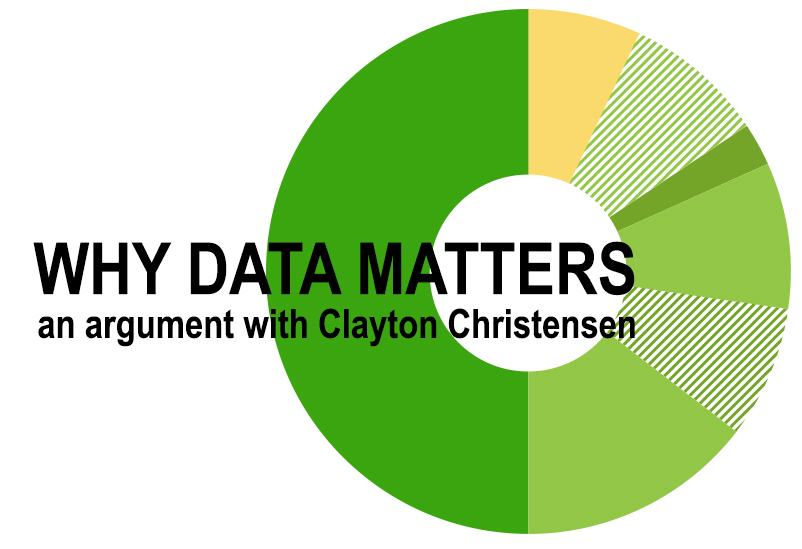As Jobs Theory picks up steam in the marketplace of JTBD ideas, there’s an argument being made that data doesn’t matter. Clay’s article in Management Today says explicitly that the spreadsheet is the enemy of innovation.
And, at a recent conference in Vienna, Professor Clayton Christensen made a statement that went along these lines:
There are no data in heaven. Why? Because data always lie. This is why we send data to hell. @claychristensen #gpdf16 pic.twitter.com/AMqkRrlkGA
— Isabella Mader (@othertwice) November 17, 2016
The problem I have with this data-dissing approach is that Professor Christensen is sending the wrong message. His message is causing people to think that all data is bad data and that companies can only win at innovation with qualitative insights. People are being left with the wrong impression and failing to capitalize on the true benefits of Jobs Theory. Christensen is particularly wrong when it comes to the right data that can be captured using proven Jobs-to-be-Done market research practices.
Christensen is right to say this:
“Little by little the people who understand the customers get displaced by people who are able to manufacture things at low cost or who know how to squeeze another pound of free cash flow out. All of a sudden you look around the table and there’s no one who understands the context of the job to be done. You’ve lost your ability to understand the customer…”
Of course, managing your business by analyzing ratios is wrong. But there is a great danger in saying that data always lies and it doesn’t matter.
Should we also demonize #Data that proves causality? Can #innovation be predictable without data? #@claychristensen #GPDF16 @AlexOsterwalder https://t.co/7GY4cP83dm
— Tony Ulwick (@Ulwick) November 17, 2016
Here is the danger. What if we could tell you what performance metrics (needs) customers use to measure success when getting a Job done? And what if we could tell you which of those performance metrics are underserved, and by how much? What if we had data that revealed hidden segments of opportunity: groups of customers with unique sets of underserved outcomes? What if we could tell you which outcomes the customer would pay a premium to have satisfied? This is the type of data we collect when we follow our Outcome-Driven Innovation process.
We call this “predictive data”, because it informs a company what outcomes a winning product must address. The data gathered as part of the ODI process is invaluable. It makes all the difference between product success and failure.
Mike Boysen’s entertaining blog post on the Buyer Journey is right on target.
The moral of the story? Ignore all data, you will likely fail. Use predictive data, you increase your chances of success at innovation 5-fold.
